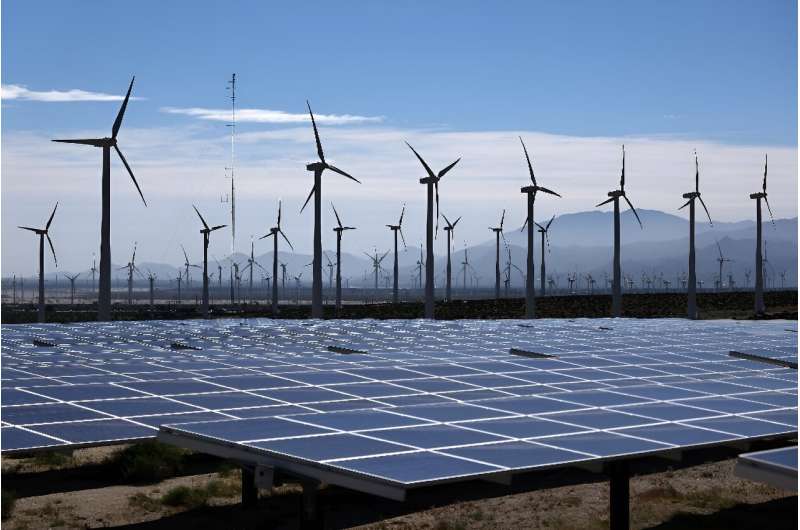
Microsoft co-founder and billionaire philanthropist Bill Gates has been hosting executives and entrepreneurs in London this week to boost investment in cutting-edge technologies promising big breakthroughs in tackling climate change.
Among those attending is Arvin Ganesan, who worked in the Obama administration and at Apple before joining the race to develop the next generation of long-storage batteries.
The power grids of the future will rely on better batteries to store excess renewable energy for when the sun isn't shining and the wind isn't blowing.
Ganesan is CEO of Fourth Power, a Boston-based company which says its prototype can store energy for weeks at a fraction of the cost of industry standard batteries.
AFP sat down with Ganesan to talk innovation, investment, and why he doesn't buy into "climate doomerism".
The following has been condensed and edited for clarity.
What problem is your company trying to solve?
If we want low-cost renewables, you're going to need storage that is dead cheap, otherwise fossil fuels will remain the power source that is available whenever you want it. Unless we can tackle price and scalability, high amounts of renewables aren't going to work on a grid. And that's what Fourth Power does."
Does it work?
"I left Apple for this company. This isn't a hope and a dream. There's a lot of work that needs to happen, but this is really just an exercise in economics, and the equation is actually very simple.
"For the first time in my lifetime—in a generation—load growth is about to go up around the world because of data centers, AI, and electric vehicles. It's predicted to be huge.
"If the cost of renewables, plus storage, is less than the cost of building a new gas plant, then put aside philosophy, put aside climate change—renewables and storage will always get deployed. So we have a very focused cost target that we need to hit in order to make that equation work."
Your company has attracted funding from Gates, but so have other battery start-ups. Can you all survive?
"The competition should not be among four or five for a small slice. It's between all these companies and whether they can be cheaper than new natural gas. So yes, all of them can succeed.
"All the companies here doing long-duration storage have a different way of approaching it. We are particularly focused on cost, scalability and flexible duration. Our batteries can go anywhere from 5 to 500 hours to whatever the customer needs.
"A rising tide raises all boats, so I don't think that there's any competition among these companies. It's fighting for a much bigger pie than just between the four of us."
This isn't all about climate. Investors want to make money off the next big thing.
"Absolutely. I think this is fitting into existing, market dynamics that allocates capital to technology that solves problems. And I think that is why there's optimism. These companies have customers, they have markets, and this doesn't feel like a lab experiment."
Is there growing investor appetite for climate technology?
"I think the market has been investing fairly deeply in climate tech solutions. It will be a success when there's not a category called climate tech, and when they're just thought of as good investments. You're starting to see that here. It's a super interesting and opportunistic moment. There are interesting people who have deep, serious backgrounds who are solving deeply existential and important problems."
© 2024 AFP
Citation: 'Not a lab experiment': climate tech CEO on green innovation (2024, June 27) retrieved 27 June 2024 from https://techxplore.com/news/2024-06-lab-climate-tech-ceo-green.html
This document is subject to copyright. Apart from any fair dealing for the purpose of private study or research, no part may be reproduced without the written permission. The content is provided for information purposes only.
